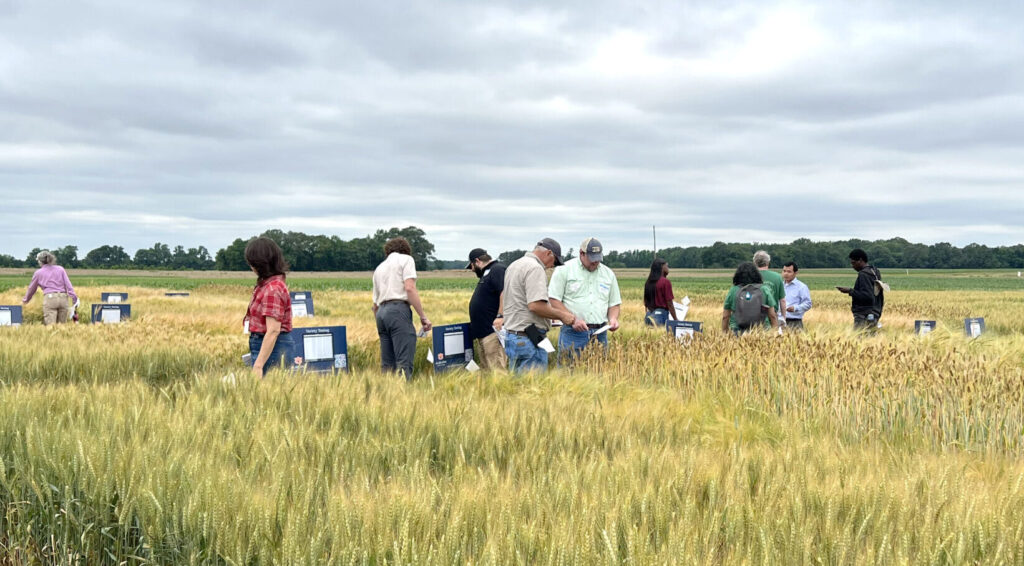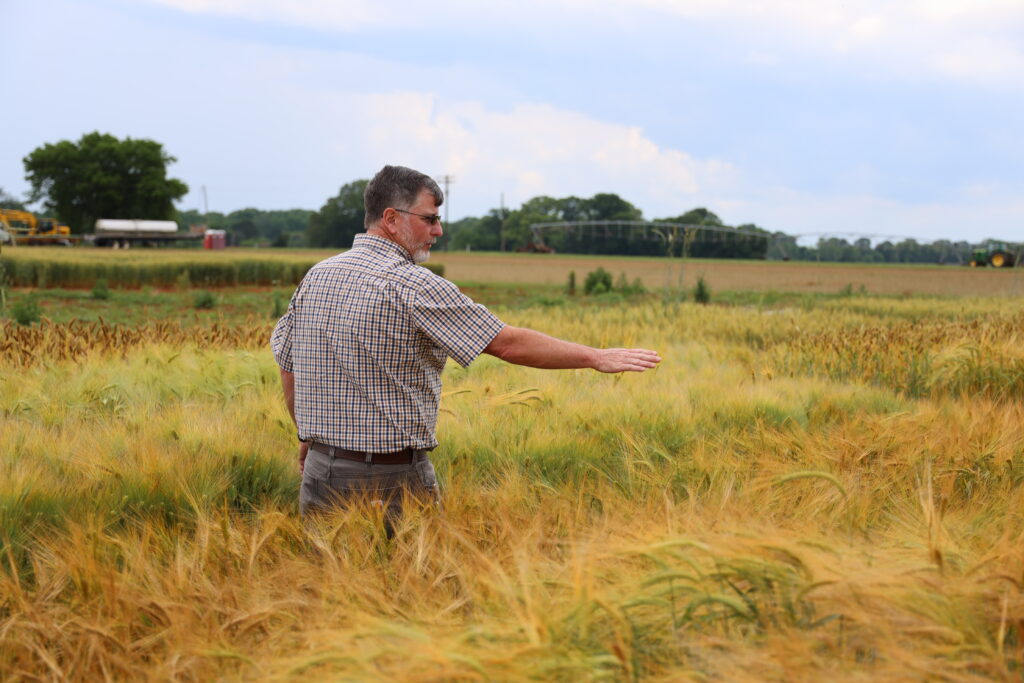Opportunity for New Alabama Cash Crop on the Horizon

By Maggie Edwards
Amber fields of barley blanketed the Tennessee Valley Regional Research and Extension Center in Limestone County days before harvest in June.
The crop holds promise for farmers, thanks to barley research by top scientists and specialists at HudsonAlpha Institute for Biotechnology.
“Barley is very relatable to any of our other small grains,” said David Harkins, an Alabama Agricultural Experiment Station regional director who helped manage HudsonAlpha’s local trials. “We treat this like all of our other small grain variety trials.”
Planting and harvesting barley is similar to caring for wheat, said HudsonAlpha project coordinator Kaitlyn Williams.
“The biggest difference between this crop and other established cash crops is the newness of it for our local farmers,” Williams said. “Our research is helping bridge the information gap for agronomic management recommendations in our region. This barley will primarily be used for craft beer, which is a relatively new industry for this area.”
Traditionally, Alabama farmers have grown corn, cotton, peanuts, soybeans and wheat. The state’s agricultural economy relies on these crops, said Dr. Josh Clevenger, who is a facility investigator and plant breeding specialist at HudsonAlpha.
“We want to do a better job at giving farmers more growing options,” Clevenger said. “Being at this institution gives us that opportunity. With the Southeast malting industry as it is, our first idea was a value-added crop, which led us to researching and growing barley.”

HudsonAlpha is celebrating 15 years of discovery, innovation and progress. The institute in Huntsville is a global leader in genetic research and strives to help farmers increase yields, improve plant genetics and diversify available crops.
“The main goal for barley research trials was to see if farmers could grow this as a cover crop, sell it for a premium and then put it back into a local economy,” Clevenger said.
Researchers planted 12 varieties of barley this year at the Tennessee Valley station, in addition to trials on other north Alabama farms. Testing occurred throughout the growing season, when growth and frost damage ratings were taken to determine the crop’s success. Once harvested, the grain was tested for protein and toxicity levels.
For further trials, HudsonAlpha partnered with Bevel Farms in Albertville, Crazy 0 Farms in Henegar and Martin Farms in Courtland.
“Our farmers have been growing wheat at high yields for years,” Harkins said. “Barley should have the same yield as their wheat fields. The only difference is where you market it.”
HudsonAlpha created a pipeline for farmers to connect with regional malters, Williams added.
After harvest, the Tennessee Valley barley was sold to Riverbend Malt House in Asheville, North Carolina, and Old South Malt House in Cullman. After the journey from field to malt house, the grain will be transformed into a high-quality malt used by local breweries.
“The idea is for us to slowly back off this project and let the local economy boom, new businesses be formed and farmers find a new crop,” Williams said.
A field day May 19 brought growers and buyers together at the Tennessee Valley station as a networking opportunity to encourage farmers to step into this new area of agriculture.
The Alabama Farmers Federation supports HudsonAlpha and its drive to help Alabama farmers. The Alabama Farmers Agriculture Foundation contributed $200,000 to other HudsonAlpha agriculture project facilities this year.
“At HudsonAlpha, we dedicate our resources to help farmers in Alabama,” said Williams, who is involved in Marshall County Young Farmers. “Our work is creating real change, new farming methods and impacting farmers’ bottom lines.”
Farmers interested in participating in barley trials should contact HudsonAlpha for more information.
